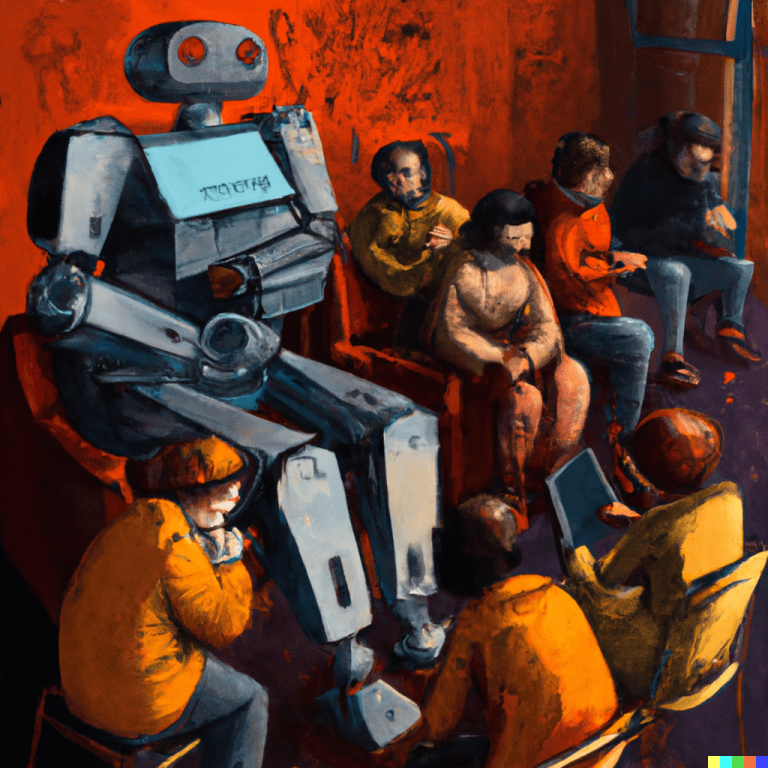“AI will help drive a definitive revolution in education”
10 October, 2024
From 9 to 11 October, the Universitat Oberta de Catalunya (UOC) hosts Learning Impact Europe 2024, an initiative of the 1EdTech Consortium, the world’s most extensive and innovative EdTech collaboration, with over a thousand member organizations from schools, higher education, and corporate learning. The conference brings together a diverse group of education providers, public bodies, and EdTech suppliers to focus on the top issues in education. This framework brought us the opportunity to interview one of the speakers, Gavin McLachlan, Vice-Principal, CIO, and Librarian at the University of Edinburgh, on the main challenges faced by education with the emergence of artificial intelligence (AI).
Do you think AI will be a definitive revolution for education or will it be a passing fad?
I think AI will help drive a definitive revolution in education. Our pedagogy and especially our assessment methods and practices were already long overdue for change to adapt to modern and evolving student needs and expectations. AI will help drive and even force educators to change. If handled properly, I think this will be a very positive change.
We also need to remember that, even if AI is no longer the top news item, the reality is that the pace of AI innovation has not slowed down since the introduction of commonly available generative AI with the launch of the first version of ChapGPT. The AI models will only get better, higher quality, more powerful and more easily available. AI is not only a continuously improving and accelerating technology, but a pervasive technology. Much like the introduction of the internet and search engines a generation ago, AI is a permanent, new and broad technology. The difference with AI is that it is evolving far quicker than those previous technologies and we need to adapt to it swiftly and then prepare to adapt again when the next evolution of AI arrives.
How have you embraced AI at the University of Edinburgh?
Yes. Our core statement on AI to students and staff is: “The University strategy is to embrace curiosity and to pursue knowledge. As one of the first to teach and research in the field of artificial intelligence over 60 years ago, we have set an ambition to be a global leader in artificial intelligence (AI) with integrity.” We encourage all students and staff to embrace AI in accordance with the university guidelines.
The University strategy is to embrace curiosity and to pursue knowledge.
What measures will you implement to help students integrate AI ethically into their daily learning tasks?
In June 2023, we introduced our first AI guidelines for students. We are now releasing updated generative AI guidelines and support. Our AI guidance addresses how the students should use AI ethically, and what they can and cannot use AI for in their studies, coursework and assessments. Support for students includes in-person training classes, an AI Ethics MOOC, a university-wide AI platform that provides equity of access for students, and a safe area for them to experiment with AI and learn about it. AI and our AI and data ethics principles are embedded in the university’s new Digital Strategy. We have an AI and Data Ethics Governance Board led by some of our leading academics and professional services experts to help guide us as we introduce more AI platforms and start using AI in a wider number of our processes, teaching practices, administration and research across the university.
How do you think AI will affect the role of traditional learning resources and what opportunities will it bring to teachers?
Creativity, critical thinking, analytical thinking and the important ability for students to express themselves in written text will not go away. These are core critical skills that need to be learnt, improved and demonstrated while at university.
We may see a change in learning resources being more accessible and consumed in new ways, such as through an AI tutor or tutor assistance. This may eventually evolve into highly personalized AI tutors and personalized learning.
AI now brings a step change in productivity, quality and the way students can leverage vast amounts of data and knowledge. Students must be taught how to use this powerful new tool as they will be part of an AI world. Educators must be able to use this new powerful tool alongside their students. Used effectively and ethically, AI will bring efficiency and quality improvements for teachers in such areas as assessment, feedback, learning outcomes, the creation and updating of new innovative course material and new methods of teaching.
AI now brings a step change in productivity, quality and the way students can leverage vast amounts of data and knowledge.
How do you envision the future of education?
I tend to be of the opinion that we can shape our own futures. I look at AI as a huge technological advance that could be used to transform education. AI has considerable potential to increase accessibility and access to education, improve learning outcomes, personalize learning, help with educator workloads, enrich our teaching and our use of learning materials and drive a new educational paradigm. However, there are considerable risks as well. The Edinburgh Futures Institute within the University of Edinburgh has postulated a number of different possible future worlds, many shaped by the way we embrace, use, react to and govern AI. Some of these possible future worlds are dystopian in nature and some represent a possible brighter future. Of course, AI, given the power of this new technology and tool, can be used for good or bad. As usual, with each major technology leap, the future in in our hands.
The eLinC’s Observatory’s opinion is that educational technologies and AI may be a way to drive change, but they are not the change themselves. Academic institutions and decision-makers must shape the future of education taking into account the main competencies needed by the future workforce but also what will bring happiness to citizens. We will be back with more interviews with the conference speakers soon.







